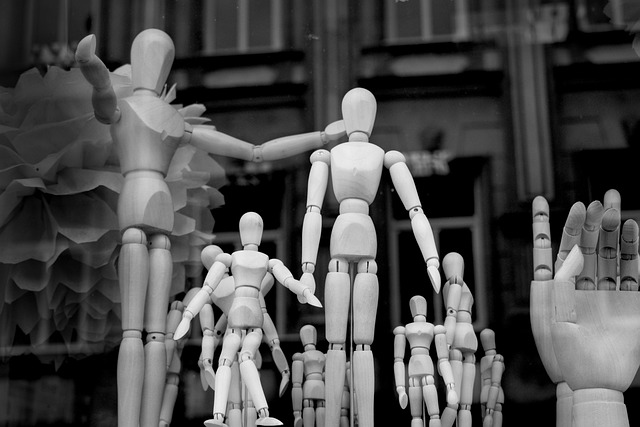Picture this: you’re getting ready for a date with someone you met online. Before stepping out, you quickly check an app to see if other women have dated this person before. Within seconds, you discover he’s been flagged for being pushy about physical intimacy or has a history of ghosting after dates. Would you still go?
This scenario isn’t fiction anymore. It’s exactly what’s happening with Tea, a controversial new app that’s climbing to the top of app store charts and sparking heated debates across social media. The app allows women to anonymously review and rate men they’ve dated, creating what some call a much-needed safety tool and others describe as a digital witch hunt.
What Exactly Is the Tea App?
Tea Dating Advice, simply known as “Tea,” launched quietly in 2023 but exploded into mainstream consciousness this summer after gaining massive traction on TikTok. The concept is straightforward yet polarizing: it’s a women-only platform where users can upload photos of men they’ve dated along with detailed reviews of their experiences.
Think Yelp, but for dating. Women can search for potential dates by name or photo to see if anyone in the community has dated them before. They can read about everything from how he treated the waitstaff at dinner to whether he respected boundaries during intimate moments.
The app’s description promises to give women “the confidence to move forward with your date” by providing access to a community of verified women sharing dating advice and experiences. But the reality has proven far more complex and controversial than this simple mission statement suggests.
The Birth of Digital Dating Accountability
The app’s founder, Sean Cook, created Tea after a personal experience that opened his eyes to the dangers women face in modern dating. According to reports, Cook was motivated to build the platform after witnessing his mother fall victim to catfishers and scammers online. This experience exposed what he saw as “glaring safety gaps in modern dating platforms.”
Cook’s vision was to create a space where women could share real-time background information about potential dates. The idea was that if someone seemed too good to be true or was displaying red flags, other women in the community could provide warnings based on their own experiences.
The timing couldn’t have been more relevant. With dating apps becoming the primary way people meet romantic partners, reports of harassment, assault, and dangerous behavior on dating platforms have been steadily increasing. Traditional dating apps like Tinder, Bumble, and Hinge have faced criticism for not doing enough to protect users from bad actors.
How Tea Actually Works
Using Tea is remarkably simple, which is part of what makes it so effective – and so controversial. Women create accounts that are verified to ensure the platform remains female-only. Once verified, they can:
Search for potential dates: Users can upload a photo of someone they’re considering dating or search by name to see if that person has been reviewed before.
Read detailed experiences: Reviews aren’t just star ratings. Women share specific stories about their dates, including details about behavior, personality traits, and any red flags they encountered.
Post their own reviews: After dating someone, users can upload that person’s photo and share their experience, rating everything from communication skills to how they handled rejection.
Get real-time advice: Beyond reviews, the app functions as a community where women can ask for dating advice and get support from other users.
The app’s interface is clean and user-friendly, making it easy to quickly check someone before a date. Many users report checking the app while sitting in their cars before entering restaurants or bars to meet potential dates.
The Viral TikTok Explosion
Tea’s popularity skyrocketed this summer largely thanks to TikTok. Videos of women demonstrating how to use the app, sharing success stories of avoiding bad dates, and debating the ethics of the platform have racked up millions of views.
Young women, particularly Gen-Z users, have embraced the app as an empowerment tool. TikTok videos show women celebrating discovering that a potential date had been flagged for concerning behavior, calling it a “bullet dodged” moment.
The viral nature of these videos has created a snowball effect. As more women join the platform and share their experiences, the database of reviews grows exponentially. This network effect makes the app increasingly valuable to its users while simultaneously making it more threatening to the men being reviewed.
The Dark Side: Privacy Concerns and False Accusations
While many women celebrate Tea as a revolutionary safety tool, critics raise serious concerns about privacy, consent, and the potential for abuse.
Privacy Violations: Men featured in reviews never consented to have their photos, names, and personal information shared on the platform. Unlike businesses on Yelp, these are private individuals who may have no idea they’re being reviewed online.
False Accusations: The anonymous nature of reviews makes it impossible to verify their accuracy. Critics worry that vindictive ex-partners or rejected individuals could post false, damaging reviews as revenge.
No Right to Response: Unlike traditional review platforms, men cannot respond to or dispute reviews about themselves. They have no recourse if false or misleading information is posted about them.
Digital Harassment: Some reviews go beyond dating behavior to include personal details, photos, and information that could be considered cyberbullying or harassment.
One particular concern highlighted in user reviews involves cases where men have been “unfairly slated” after simply choosing not to pursue romantic relationships. These reviews suggest that some women may be using the platform to retaliate against men who weren’t interested in continuing to date them.
Men’s Growing Anxiety
As Tea’s popularity has grown, so has anxiety among men in the dating world. Social media posts show men expressing concern about being reviewed, especially as the app gains traction among younger daters.
Some men report feeling like they’re constantly being evaluated during dates, knowing that any misstep could result in a negative review that might affect their future dating prospects. Others worry about past relationships or dates that didn’t go well, wondering if they’ve already been reviewed without their knowledge.
This has created what some describe as a “chilling effect” on dating behavior. While supporters argue this is exactly the point – encouraging better behavior through accountability – critics worry it’s creating an atmosphere of fear and paranoia that could make dating even more difficult for everyone involved.
The Legal and Ethical Gray Area
Tea operates in a complex legal and ethical gray area that raises questions about digital rights, privacy, and the responsibility of app creators.
Defamation Concerns: Anonymous negative reviews could potentially constitute defamation if they contain false statements that damage someone’s reputation.
Platform Liability: Questions remain about what responsibility Tea has for moderating content and preventing abuse of its platform.
Data Protection: The app collects and stores personal information about individuals who never agreed to be included in its database.
Consent Issues: The fundamental question of whether it’s ethical to review private individuals without their consent remains hotly debated.
Legal experts suggest that while the app may be protected by free speech principles, individual users could potentially face legal consequences for posting false or defamatory reviews.
Supporters Fight Back
Despite the criticism, Tea has passionate defenders who argue that the app addresses a real and dangerous problem in modern dating. Supporters point to several key benefits:
Safety First: In a world where women face genuine risks when meeting strangers from dating apps, Tea provides valuable safety information that could prevent harassment, assault, or worse.
Community Support: The app creates a supportive community where women can share experiences and advice about dating challenges.
Behavioral Accountability: Knowing they might be reviewed could encourage men to treat their dates with more respect and consideration.
Filling a Gap: Traditional dating apps have failed to adequately address safety concerns, leaving women to find their own solutions.
Women who’ve used the app successfully often share stories of avoiding potentially dangerous situations thanks to warnings from other users. These testimonials highlight the real-world impact the app can have on women’s safety.
The Broader Cultural Context
Tea’s controversy reflects broader cultural tensions around gender, power, and accountability in dating. The app’s popularity among women speaks to frustrations with traditional dating dynamics and a desire for more control and safety in romantic interactions.
The backlash from some men reveals anxiety about shifting power dynamics and the potential consequences of past behavior. This generational divide is particularly stark, with younger users more likely to embrace the app while older users express more concern about privacy and fairness.
The debate also touches on larger questions about digital justice, the role of technology in social accountability, and the balance between safety and privacy in the digital age.
What’s Next for Tea?
As Tea continues to grow in popularity, several key questions will determine its future:
Regulation and Legal Challenges: The app may face legal challenges related to privacy, defamation, or data protection laws.
Platform Evolution: How Tea responds to criticism and what features it adds (such as verification systems or appeal processes) will shape its long-term viability.
Cultural Impact: Whether the app normalizes this type of dating review culture or faces backlash that limits its growth remains to be seen.
Competitor Response: Traditional dating apps may respond by implementing their own safety features, potentially reducing Tea’s unique value proposition.
Insights
The Tea app represents a fascinating case study in how technology intersects with dating culture, gender dynamics, and digital ethics. While it clearly addresses real safety concerns that women face in modern dating, it also raises important questions about privacy, consent, and the potential for abuse.
Whether you see Tea as an empowering safety tool or a concerning invasion of privacy likely depends on your perspective on dating, gender relations, and digital rights. What’s clear is that the app has struck a nerve, sparking conversations about accountability, safety, and power in romantic relationships that extend far beyond the dating world.
As Tea continues to grow and evolve, it will serve as an important test case for how society balances individual privacy rights with community safety needs in the digital age. The outcome of this debate will likely influence how we think about accountability, anonymity, and power in online spaces for years to come.
One thing is certain: Tea has already changed the dating game, and there’s no going back. Whether that change is for better or worse depends entirely on who you ask – and that might be the most telling thing of all.



